Related Research Articles

The Long Parliament was an English Parliament which lasted from 1640 until 1660. It followed the fiasco of the Short Parliament, which had convened for only three weeks during the spring of 1640 after an 11-year parliamentary absence. In September 1640, King Charles I issued writs summoning a parliament to convene on 3 November 1640. He intended it to pass financial bills, a step made necessary by the costs of the Bishops' Wars in Scotland. The Long Parliament received its name from the fact that, by Act of Parliament, it stipulated it could be dissolved only with agreement of the members; and those members did not agree to its dissolution until 16 March 1660, after the English Civil War and near the close of the Interregnum.
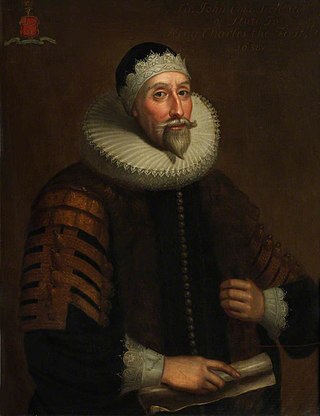
Sir John Coke MP JP PC was an English civil servant and naval administrator, described by one commentator as "the Samuel Pepys of his day". He was MP for various constituencies in the House of Commons between 1621 and 1629, and served as Secretary of State under Charles I, playing a key part in government during the eleven years of Personal Rule from 1629 to 1640.

John Rushworth was an English lawyer, historian and politician who sat in the House of Commons at various times between 1657 and 1685. He compiled a series of works covering the English Civil Wars throughout the 17th century called Historical Collections and also known as the Rushworth Papers.
Thomas Hatcher was an English politician who sat in the House of Commons at various times between 1624 and 1659. He fought on the Parliamentary side during the English Civil War.
Ambrose Manaton was an English politician who sat in the House of Commons of England in 1624 and 1640. He supported the Royalist side in the English Civil War.

Sir John Glanville the younger, was an English politician who sat in the House of Commons at various times between 1614 and 1644. He was Speaker of the English House of Commons during the Short Parliament. He supported the Royalist cause in the English Civil War.
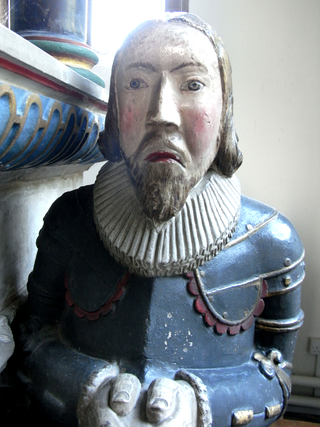
Sir Francis Popham (1573–1644) of Wellington, Somerset, was an English soldier and landowner who was elected a Member of Parliament nine times, namely for Somerset (1597), Wiltshire (1604), Marlborough (1614), Great Bedwin (1621), Chippenham 1624, 1625, 1626, 1628–29), and for Minehead (1640–1644).
Sir George Stonhouse, 3rd Baronet was an English politician who sat in the House of Commons from 1640 to 1644 and from 1660 to 1675. He supported the Royalists during the English Civil War.

Sir Alexander Denton was an English politician who sat in the House of Commons variously between 1625 and 1644. He supported the Royalists during the English Civil War. He also has a house at a grammar school in Buckinghamshire
Sir William Dalston, 1st Baronet was an English politician who sat in the House of Commons from 1640 to 1644. He supported the Royalist side in the English Civil War.
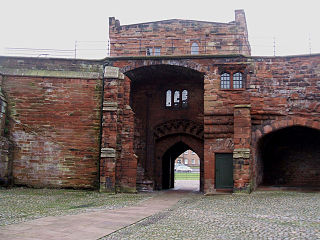
Sir George Dalston (1581–1657) of Dalston Hall, Cumberland was an English politician who sat in the House of Commons of England between 1621 and 1643. He supported the Royalist cause in the English Civil War.
William Marlott of Shoreham was an English politician who sat in the House of Commons between 1625 and 1646. He supported the Parliamentarian side in the English Civil War.
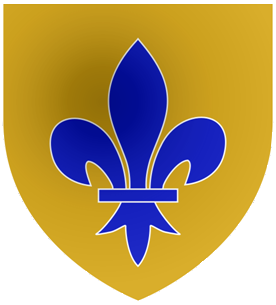
Sir William Portman, 5th Baronet was an English politician who sat in the House of Commons from 1640 to 1644. He supported the Royalist side in the English Civil War.

Richard Herbert, 2nd Baron Herbert of Chirbury was an Anglo-Welsh Member of Parliament, a Royalist who fought with the rank of colonel in the English Civil War, and a peer whose membership of the House of Lords was curtailed by its abolition in 1649.
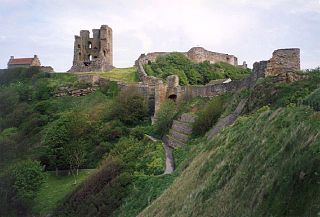
Michael Warton was an English politician who sat in the House of Commons between 1640 and 1644. He fought and died on the Royalist side in the English Civil War.

Richard Aldborough of Ellenthorpe Hall, Aldborough, Yorkshire was an English politician who sat in the House of Commons between 1625 and 1644 He supported the Royalist side in the English Civil War.
Ralph Goodwin was an English politician who sat in the House of Commons variously between 1624 and 1644. He supported the Royalist cause in the English Civil War.
William Chadwell was an English lawyer and politician who sat in the House of Commons between 1640 and 1644. He supported the Royalist cause in the English Civil War.
Sir Thomas Smith was an English politician who sat in the House of Commons between 1640 and 1644.
Sir Henry Ludlow (1592–1643) was an English landowner and politician who sat in the House of Commons at various times between 1614 and 1643.
References
- 1 2 3 John Burke A genealogical and heraldic history of the commoners of Great Britain, Volume 3
- ↑ Willis, Browne (1750). Notitia Parliamentaria, Part II: A Series or Lists of the Representatives in the several Parliaments held from the Reformation 1541, to the Restoration 1660 ... London. pp. 229–239.